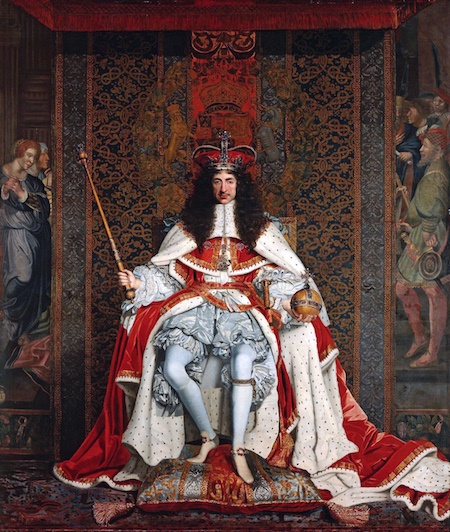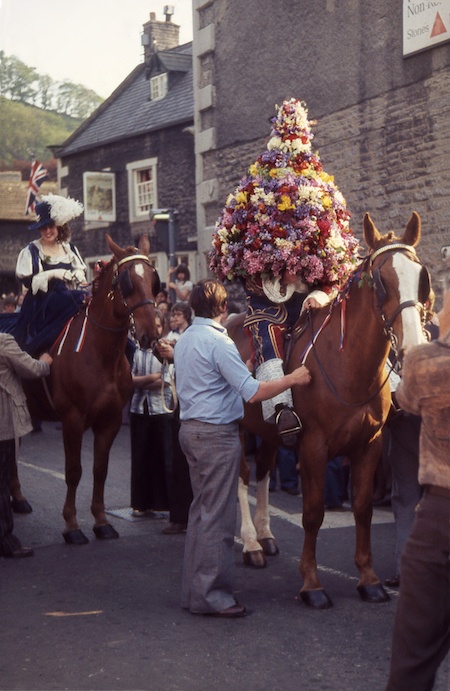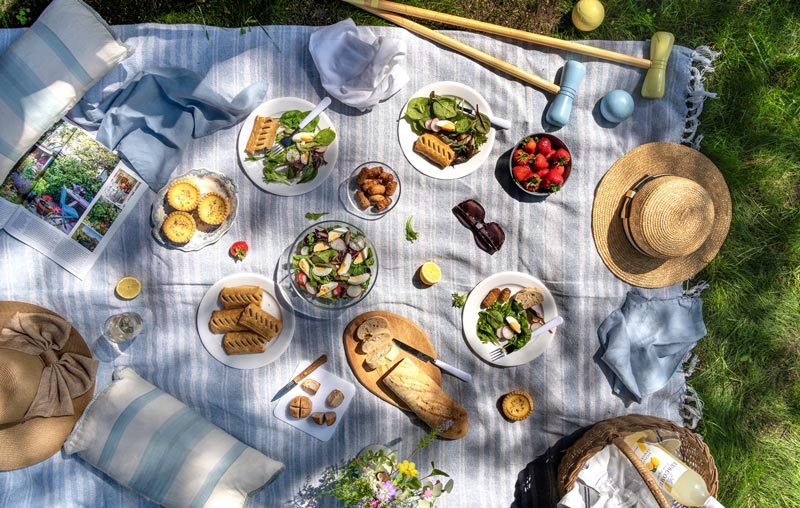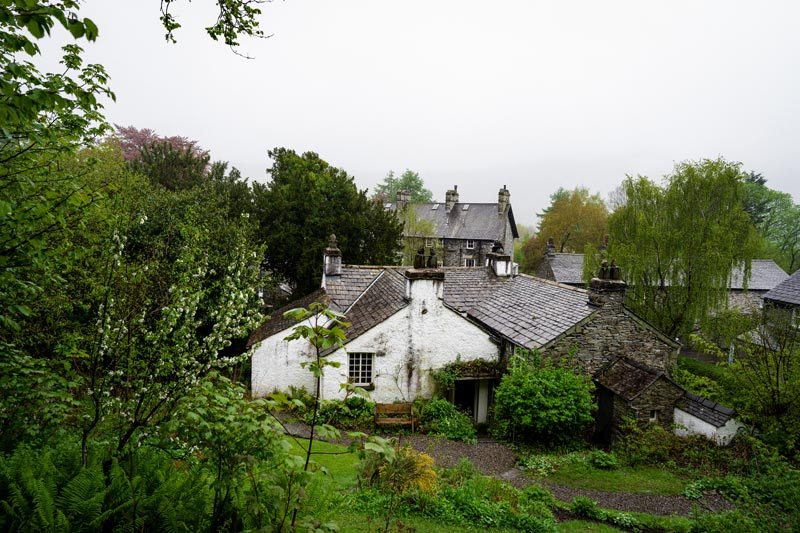I threw a picnic in our garden the other day. We were busy with all…
Have you heard about the Royal Oak Apple Day?
The Royal Oak Apple Day was an English National Holiday celebrated on 29th May in the whole country until it was abolished in 1859. (Let me say what a pity as the UK do not really have National Holidays.)
First of all: What is and Oak Apple?
Oak apple is a large, round, vaguely apple-like shape found on oak trees, they can be about 2 to 4 centimeters in diameter and are caused by the larva of gall wasps.
Why is an oak royal?
The Royal Oak must sound familiar being one of the most popular pub name in England. The term refers to a historical event. After the Battle of Worcester on 3 September 1651 Charles II escaped the Roundhead army and he spent the entire night hiding in an oak tree in Boscobel. (This reminds me of St Martin of Tours who hid in a barn full of geese.) Charles II managed to get to Shoreham and left England on 15th October by ship. He just managed to escape as Cromwell’s soldiers got to the port two hours after the ship left.
After Cromwell’s death, his son Richard became the Lord Protector in 1958, however soon he had to resign and the Long Parliament invited Charles II back to England who had been living in exile for 8 years. Charles II stepped on English soil on 25th May at Dover and reached London on his 30th birthday, on 29th May. Therefore, 29th May had 2 meanings: the Restoration of the Monarchy and Charles II’s birthday.

How did people celebrate?
People wore sprigs of oak leaves with oak apples still attached. Kids too wore oak leaves and often they whipped those with nettles who were not dressed in oak, hence in some places it is called „Nettle Day”. Maypole dancing, Morris dancing and feasting were usual part of the celebration.
Today
Although it is not a National Holiday anymore, in some parts of the country the custom is still alive: Worcester, Wishford (Wiltshire), Northampton, St Neot (Cornwall), Marsh Gibbon (Buckinghamshire). In Northampton the statue of Charles II, in Wocester the Guildhall’s railings are decorated with oak leaves on Oak Apple day. The Royal Chelsea Hospital (Home of the famous Chelsea Pensioners) which was founded by Charles II celebrates the Royal Oak Apple day, and one of the Royal Family attends the ceremony.
In the Lake District, in Castleton, Garland Day is celebrated on 29th May. This custom originally was possibly a fertility ritual, but in later days it is said to commemorate the Restoration of the Monarchy. A man dressed in a Stuart costume is covered in flowers and led on horseback through the town followed by Morris dancers.

Other interesting facts about the oak:
- Charles II awarded a coat of arms to Colonel Careless which contained an oak tree and three royal crowns – represented the three kingdoms of England, Scotland and Ireland.
- In culture oak symbolises respect for the ancestors – the Hungarian Coats of arms is surrounded by oak leaves.
- The Oak Tree is a symbol of England, but there was a naval ship called HMS Royal Oak which was sunk in 1939.
- The Royal Oak is also a name of a tube station in London on the Hammersmith & City Line and Circle Line.
- The name Royal Oak is one of the top 3 most popular pub and hotel names in the UK. The Royal Oak, Paley Street, is a
- Michelin Star pub in Berkshire.
- In the Sherlock Homes episode, The Musgrave Ritual, the motif of royalty and oak appears in a riddle that later leads to the hidden golden crown of Charles I.
Whose was it?
His who is gone. (= Charles I)
Who shall have it?
He who will come. (Charles II)
(What was the month?
The sixth from the first.)
Where was the sun?
Over the oak.
Where was the shadow?
Under the elm.
How was it stepped?North by ten and by ten,
East by five and by five,
South by two and by two,
West by one and by one,
And so under.
What shall we give for it?
All that is ours.
Why should we give it?
For the sake of the trust.
~
It is such a lovely tradition and it would be nice if at least pubs with the name „The Royal Oak” were to revive the custom.




Comments (0)